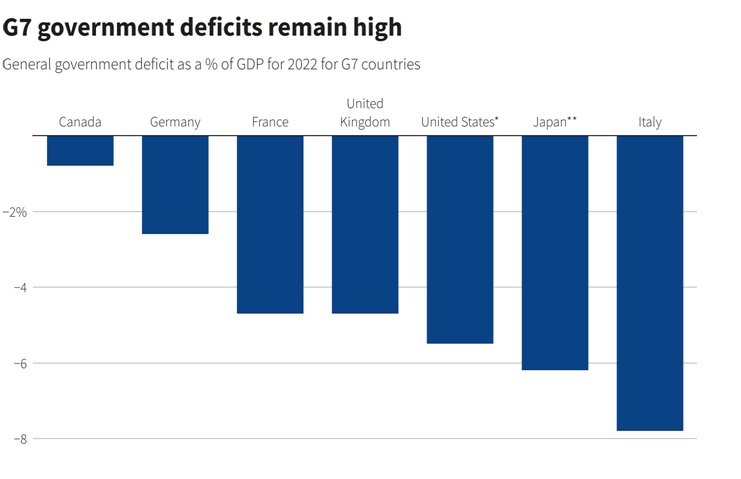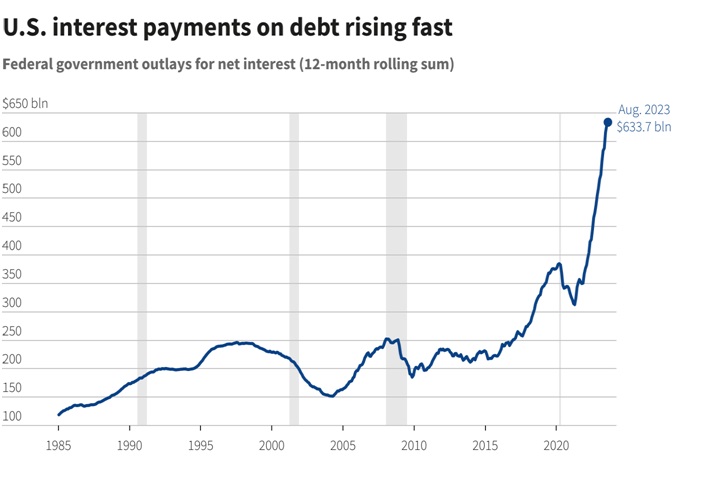Technology
Rising Global Debt: Is Another Financial Crisis Looming?

Highlights
- Mounting global debt, rising interest rates, and increasing costs pose a threat to major developed economies.
- Over 80% of the $10 trillion surge in global debt in the first half of 2023 came from developed economies.
- Concerns are particularly high for the United States, Italy, and Britain, prompting calls for credible fiscal plans.
- Escalating interest payments, especially with higher rates, add to financial pressure.
- Efficient spending, structural reforms, and growth-oriented plans are crucial for long-term stability.
- Delayed action may hinder governments’ ability to effectively address future economic shocks.
Mounting global debt, escalating interest rates, and the growing costs associated with climate change, healthcare, and pensions are raising concerns of a potential financial market crisis in major developed economies. In this article, we delve into the factors contributing to this economic predicament and explore the potential implications.

Rising Global Debt: Is Another Financial Crisis Looming?

Rising Global Debt: Is Another Financial Crisis Looming?

Rising Global Debt: Is Another Financial Crisis Looming?
Record Debt Levels: The Institute of International Finance reports that over 80% of the staggering $10 trillion surge in global debt in the first half of the year, culminating in a record $307 trillion, emanated from developed economies. Notably, countries such as the United States, Italy, and Britain have garnered the most apprehension among prominent economists and investors.
Challenges and Solutions: While experts do not anticipate developed economies defaulting on their debt, they emphasize the need for governments to establish credible fiscal plans. This involves implementing measures such as tax hikes and prioritizing initiatives that stimulate economic growth. Heightened geopolitical tensions further compound the complexities.
Key Concerns: The United States, facing political budgetary challenges and large primary deficits, is a focal point of unease. Analysts caution against an eventual reckoning marked by political crisis and potential market turmoil. Similarly, Italy’s substantial 2.4 trillion-euro debt garners attention in Europe. Its recent increase in debt risk premium and the looming threat of a downgrade could have significant ramifications for the region.
The Role of Interest Payments: With debt levels nearing or surpassing 100% of GDP in Britain, the United States, and Italy, aging populations, climate change, and geopolitical risks amplify the urgency for robust fiscal policies. Rising interest payments, especially with higher rates, exacerbate the financial strain.
Path Forward: Efficient spending, structural reforms, and growth-oriented plans are imperative. Experts stress the necessity of increased investments, advocating for credible fiscal strategies. While tax hikes and spending cuts may be unpopular, they are deemed essential for long-term stability.
The global economy stands at a critical juncture, with burgeoning debt levels and escalating interest rates posing significant challenges. By implementing prudent fiscal measures and driving economic growth, governments can steer away from a potential crisis. The time for action is now, as delays may hinder the ability to effectively address future shocks.




















































